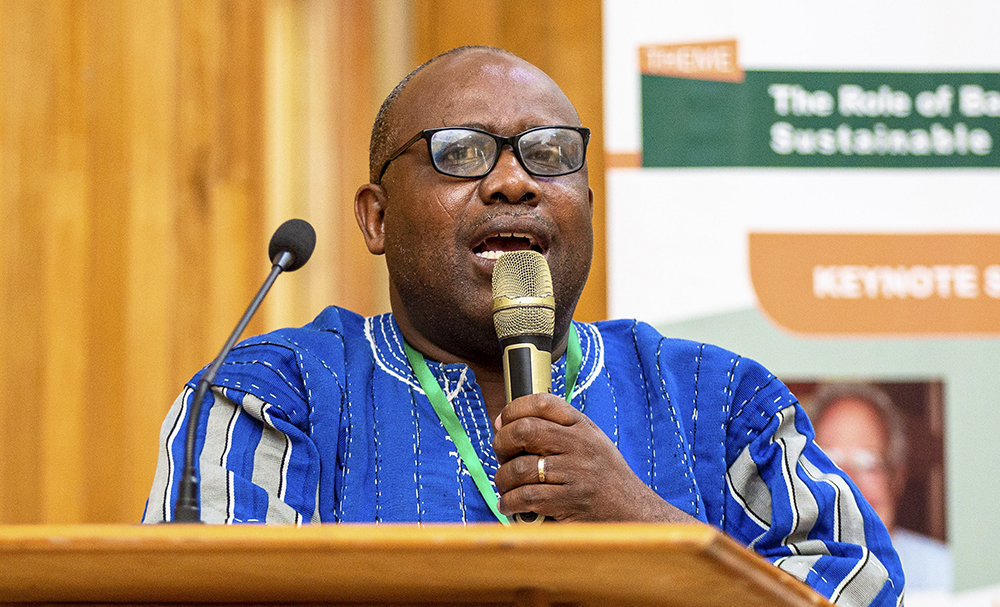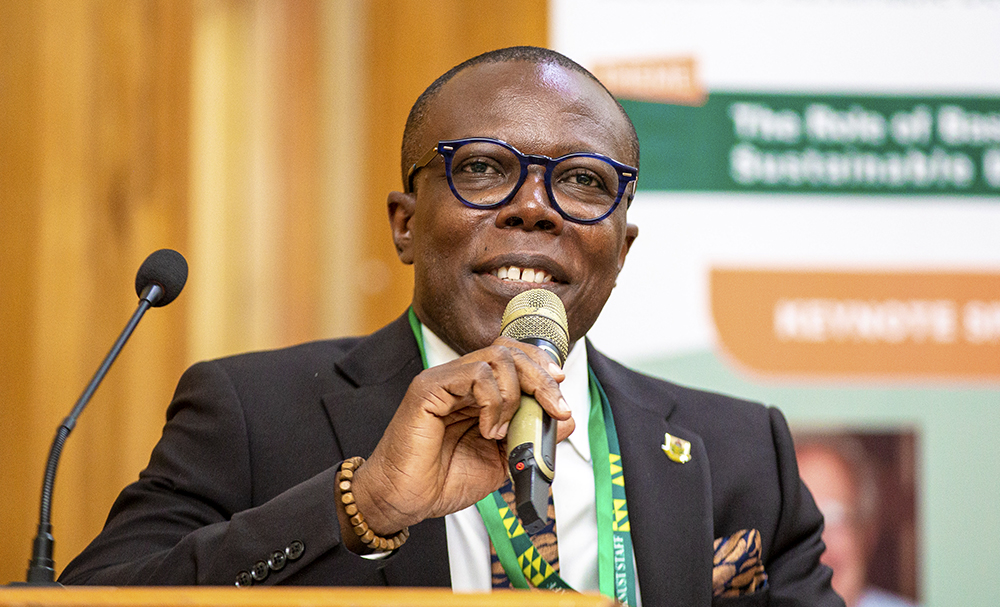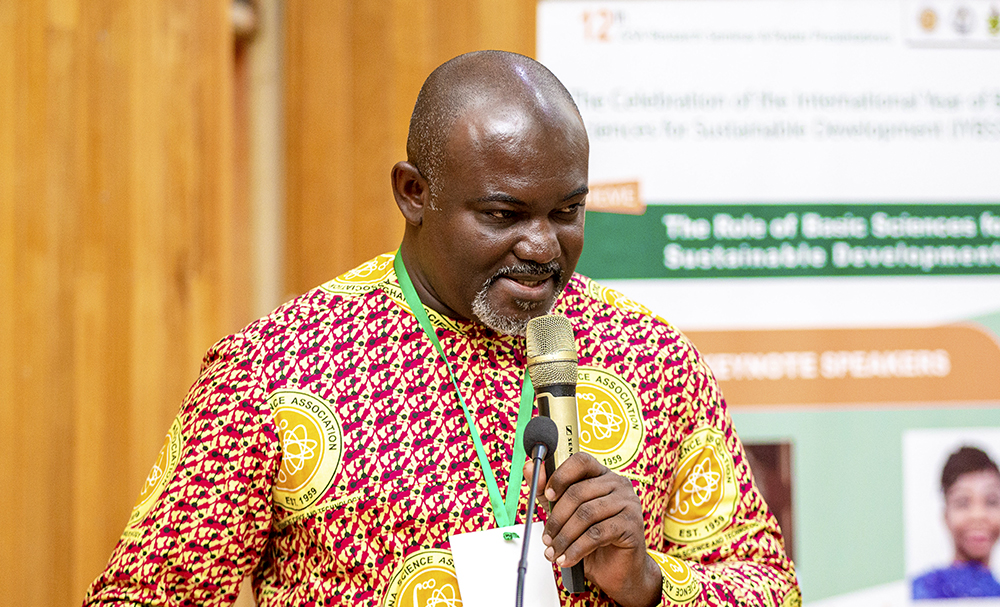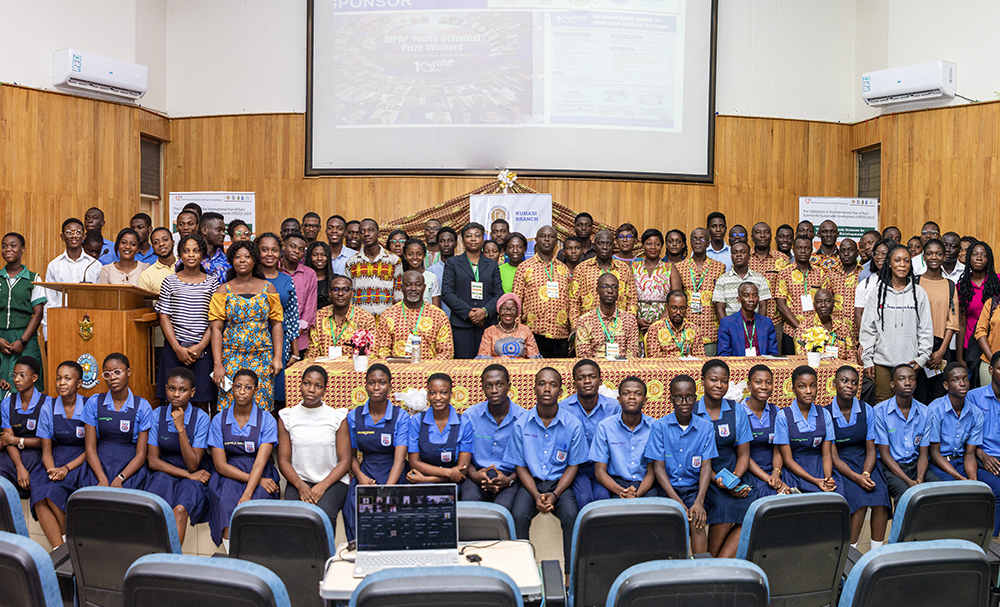The Ghana Science Association (GSA), Kumasi, in collaboration with the Ghana Academy of Arts and Sciences (GAAS), the College of Science (CoS) and the Young Researchers Forum (YRF) of the Office of Grants and Research (OGR) at the Kwame Nkrumah University of Science and Technology (KNUST) has marked the celebration of the International Year of Basic Sciences for Sustainable Development (IYBSSD-2023).
The IYBSSD-2023 was celebrated with the 12th GSA Seminar and Poster Presentations on the theme: The Role of Basic Sciences for Sustainable Development under the sponsorship of the International Union of Pure and Applied Physics.

In his remarks, the Chairperson for the occasion, Provost of CoS, Professor Leonard K. Amekudzi, said the day also marks International Women’s Day which is on the theme: of embracing equity for their development. He continued that we cannot talk about technology and development without basic science, which is the bedrock of technology and development.
The Provost commended the GSA for championing the cause of basic science and ensuring that it is well taught at the basic and secondary school levels. He noted that the Association has also offered training, conferences, and workshops to teachers of basic science in schools throughout the country. He hoped the celebration would further push their efforts of advocating for the basic sciences.

The Special Guest of Honour, Professor Ellis Owusu-Dabo, also commended the GAAS and the GSA for their contributions over the years to the teaching and learning of science. The Pro Vice-Chancellor bemoaned the low number of students studying basic science courses at the senior secondary school level and called for serious attention to be given to the supply chain pipeline of science at the basic level. He said the supply chain of the basic sciences needs to create an enabling pipeline to create interest at basic and secondary schools to get more numbers at the tertiary level.
“We should look at the problem at the basic schools to help encourage the study of basic sciences”. We should look at making the teaching and presentation of science attractive to students, he added. According to Professor Ellis Owusu-Dabo, the teaching of science and access to science education is a constitutional mandate and we cannot make it extinct or the preserve of a few.
He said KNUST as a leading science, technology, and an entrepreneurial university recognizes the efforts of the organisers on science as a tool for development.
He cited KNUST’s 9th Summer School held in September 2021 on the Sustainable Development Goals (SDGs) and its 70th Anniversary celebrations as highlighting the activities of the university in promoting the SDGs.
The Special Guest said KNUST has hosted national and international conferences and workshops as part of training and community service in science and technology education. He also added that the University has a conducive environment for undertaking cutting-edge research and learning.
Professor Owusu-Dabo also stated that KNUST encourages female science education as well as encouraging women to take up education, opportunities, and careers in the basic sciences as well as Science, Technology, Education, and Mathematics (STEM). He stated that though a lot of work has been done, and KNUST is open to further the cause of the basic sciences, he called for more concerted efforts to make the teaching and learning of the basic sciences a formidable one.

In a solidarity message, the President of the GSA, Dr. Michael Osae, observed that the Association has been advocating for the promotion of science for the past 60 years. He indicated that every aspect of life benefits from science but unfortunately, there is only one science Ministry in Ghana. He stated that it is also unfortunate that less recognition is given to the basic sciences, but the work of the basic sciences translates into the other sciences, and it is important to recognise them. "Whiles highlighting the contributions of scientists for sustainable development, we must recognise that they depend on the basic sciences", He concluded.

















